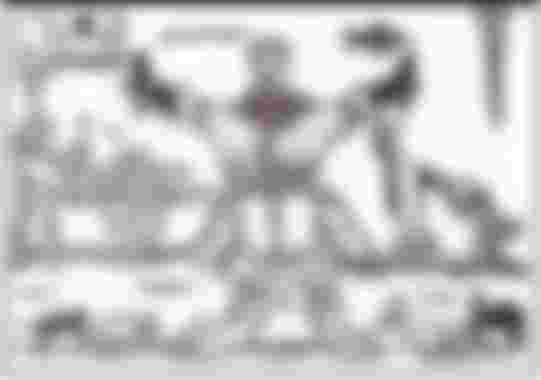The English Civil Wars of the seventeenth century saw a great flourishing of new ideas about how society should be structured and the world governed. Even aside from the small matter of King Charles I getting his head chopped off, a whole raft of new and radical ideas were fashioned, debated and, in some cases, implemented. One of the groups that rose to prominence and, for a time, had considerable influence was the Levellers.
Governance for the People by the People
The Levellers sought more religious freedom and a wide range of social and economic changes. However, they are perhaps best remembered for their demands for a radically new political order which sought to make government truly accountable to the people, with many more citizens getting the right to vote, annual elections, a written constitution with basic human rights for all and decentralisation.
One of the ways in which they sought to get their agenda implemented was by building a huge level of support amongst the rank and file of Oliver Cromwell’s New Model Army. Whilst this support was eventually undermined and the Levellers faded into history, many of their ideas went on to shape the westernised world in which many of us live today.
What, you might ask, has this got to do with Autonomous Decentralised Organisations (DAO)? Well, let’s take a look.

Decentralised Autonomous Organisations
It seems as if DAOs have been popping out of the woodwork left, right and centre of late, or perhaps I’m just noticing them more. I’ve also been taking more notice of outfits like SubDAO, whose purpose in life is to provide the building blocks for the creation and operation of DAOs. But whether or not I am simply imagining that more and more DAO are appearing all the time, there’s no arguing there’s lots of them around.
DAOs offer a decentralised, token-based, autonomous and transparent means for setting up and operating a community of like-minded people, usually based around a specific topic. As with so much about the world of the blockchain, the basic idea is to get away from a centralised model where control is tightly exercised by a tiny clique that operates in an opaque and far from open way.
There are already DAOs covering many different topics or specialisms. For example, DuckDAO is an investment fund and SongCamp a social DAO, whilst other DAOs such as JennyDAO have been set up for collectors or those such as MolochDAO set up to offer grants. Already this allows us to see how widespread the use of the DAO model has become and, remember, it’s still early days for the world of the blockchain.
One Size Does Not Fit All
For me, one of the most interesting things about DAO is that it is not a case of one size fits all, as in they do not have to be set up to operate in exactly the same way. Even if the underlying concepts, such as decentralisation and transparency, are common to all, the precise nature of how a DAO works can be varied to suit its own needs.
A good example of this would be the approach to voting and rewards distribution. Where voting is concerned, in some cases DAO operate based on one vote per token. That’s a model that is familiar enough and comes straight out of the existing world, for example, most companies work on the basis of one vote per share. However, in the eyes of some, this is a flawed model since it gives power to the few i.e. those with the most shares or tokens, which means a DAO isn’t, in fact, very much of a community at all.
However, there is nothing to stop a DAO from deciding to operate its voting arrangements in some other way, for example, each member gets one vote irrespective of the number of tokens they hold. Alternatively, the right to vote or the weight that a vote carries could be determined by how active a part an individual has played in the community.
Similarly, if a DAO issues rewards then it might choose to do so based simply on how many tokens an individual holds or, again, it might instead decide to base rewards on the extent of an individual’s participation in the community.
To my mind, it is this ability to flex the way a DAO is set up and operates so that it best suits a group’s needs, that provides so much potential for DAO going forward. Whatever the need, so long as the underlying concepts are accepted there is almost endless scope to structure the organisation so that it best meets the needs of a given group.
Changing Times
I should add here that I am not seeking to push any particular political or social agenda. For one thing, I have absolutely no idea what DAOs will look like and how they will operate in the future. The whole world of the blockchain is too new to do anything other than make considered guesses about such things. The DAO concept might go on to be a fabulous success or it could sink without trace.
No, one of the things that interest me about the rise of the blockchain is the opportunities it brings for wider change, across all areas of society. I believe we have entered a period of major change, not just technological but one that impacts all areas of our lives. Some of this will turn out to be for the better and some of it, sadly, will not.
DAOs present an interesting opportunity as we enter this period of major change in our lives. Whether or not they end up playing a significant part in what is to come remains to be seen but right now the opportunity is there for them to do just that. Perhaps a new group of Levellers from across the globe are, even now, marshalling their forces, ready to launch themselves onto the stage as they seek to secure a leading role in the unfolding events of these times.
Are you a member of a DAO? Do you take an active part in its operation? What are your thoughts on how DAO currently work and how they might work in future? It would be great to hear what you think in the comments section.
Until next time…
Renaissance Man
Earnathon – get paid to learn about crypto
The Usual Disclaimer
Please don’t take any of the above as financial or investment advice. It is intended to be nothing other than a little entertainment and information sharing. Always, but always, do your own research before committing your money to anything.
